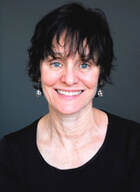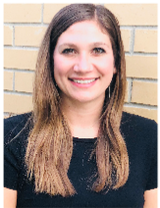|
An interview with Sarah Ball, PharmD, Research Assistant Professor, Division of General Internal Medicine, Medical University of South Carolina and Megan Pruitt, PharmD, Clinical Pharmacy Consultant, SCORxE Academic Detailing Service and Assistant Professor, Department of Clinical Pharmacy and Outcomes Sciences, Medical University of South Carolina by Anna Morgan, RN, BSN, MPH, NaRCAD Program Manager Tags: COVID-19, Opioid Safety, Stigma, Substance Use, Training  Anna: Hi Sarah and Megan- thanks for taking the time to chat! Can you tell us a bit about your program, SCORxE, and how your AD work has concentrated on improving opioid safety? Sarah: SCORxE began in 2007 as an academic detailing service at the South Carolina College of Pharmacy and is now part of the Medical University of South Carolina (MUSC) College of Pharmacy. Our current efforts are around addressing the opioid epidemic. We’re fully funded by the South Carolina Department of Health and Human Services, and our agreement talks about bringing together quality initiatives for safer opioid prescribing and expanding access to MAT. We’ve been able to effectively bring together quality initiatives from different state agencies that span prevention and treatment. This braiding has been a unique experience for our academic detailing service. Regardless of the specific topic, our detailers promote opioid risk reduction strategies, help recruit and support MAT providers, and work to reduce stigma around MAT. We’re currently shifting our focus from chronic pain to acute pain. We’ll be detailing both primary care providers and surgeons on post-surgical pain. Anna: Detailing surgeons is a unique approach – we’d love to hear about the results of that process in the future. And you’re working on other topics outside of opioid safety, too – tell us more. Sarah: Our providers always welcome new topics. While our focus is on the opioid epidemic, we try to expand our content reach when possible. We recently detailed on depression and anxiety screening, and touched on alcohol use disorder in our topic on naltrexone. We’ve always offered CME credits and our current strategy is shorter and more focused visits that offer a half hour of CME credit, as opposed to one or two hours of credit. This allows us to have multiple visits with each provider and to individualize next topic selection. Megan: As a detailer, it’s helpful to have a menu of shorter topics that providers can choose from – it makes our visits more flexible.  Anna: Speaking of flexibility - how are you continuing to detail and run your program given the current COVID-19 pandemic? Sarah: We haven’t previously engaged in virtual visits or e-detailing. We’re planning to reach out to our network of academic detailing colleagues who’ve had e-detailing visits in the past to see what their experience has been like. It’s times like these that show how valuable it is to have a network of academic detailing services. Being able to share ideas and find out what other folks have done will help us determine what will work best in our state. Megan: We’ve been using the past few weeks to work on creating materials and scripts for upcoming topics. It’s been a good time to refresh on a lot of our content and update various internal documents. I’m going to begin reaching out to providers within the next few weeks and gauge their interest and comfort level in using a virtual platform. Sarah: We know this is a difficult time for primary care providers, so it’s important for us to be compassionate in how we go about scheduling visits. We want to be sensitive to our providers’ time and respect what they’re going through, while still offering our detailing service around topics related to the opioid epidemic.  Anna: You’re not alone in figuring out this balance! You also mentioned that peer learning is an important component to a successful intervention. Can you tell us about your own peers on your team, and how they enhance your overall detailing service? Sarah: Our program is under the College of Pharmacy, so we’ve recruited all our detailers from there and they’ve all been clinical pharmacists. We’re fortunate to have pharmacists because they’re well-respected among providers we visit. We have two full-time detailers, which is a privilege, and they’re very passionate about their work. Being able to have two people fully commit to detailing is far greater than the number implies. Both of our detailers have different personalities and different experiences to share – I think they complement each other very well! Detailing can be lonely, though. When you have more detailers in your program that add up to two full time equivalents, what we have had in the past, you have more people sharing experiences during debriefs and more people to bounce ideas off; there are pros and cons to both scenarios.  Megan: My colleague, Lauren, and I come from different clinical backgrounds. When we work on our content development and role playing, we’re able to help each other consider things differently. It’s been fun to work with somebody who differs so much from me! Anna: It sounds like you balance each other out well. How are the detailers in your program trained? Sarah: All of our detailers have gone through pretty intense academic detailing training on the marketing of evidence-informed clinical ideas. Our most recent hires have gone through NaRCAD training, but before there was a NaRCAD, our pharmacists went through a training developed by a group in Australia. That training gave us a step up on everything when we first started our program, as NaRCAD also does with programs just getting started. We garnered our baseline of how we develop content, how we develop our supporting materials, and essentially how we put together our whole intervention. Anna: It sounds like the detailers in your program are trained well and prepared for the field. Do you have certain strategies for getting in the door? Are there key stakeholders who your program has connected with that have helped you to do this? Megan: Showing up at the office has repeatedly proven to work for us. We bring a letter to share with the first gatekeeper at the front desk, so that we can get face-to-face time with the providers for introductions. We’re usually able to schedule a meeting fairly easily after that. If we can’t meet with the provider face-to-face, we try to speak with the Office Manager. Recently, we’ve been leveraging our group presentations at clinics to get more 1:1 visits. We try to promote our detailing visits during our presentations and grab contact information from providers afterwards. We’ve also found that it’s been helpful to stay in the break room at an office after a visit - we might stay there all day and introduce ourselves to a number of providers who end up wanting to either schedule a visit that day or in the future. We’ve found great success in being present for providers when they’re ready.  Sarah: When you can get face-to-face with the providers for a brief introduction, it’s a beautiful thing-it’s how we’ve gotten most of our visits over the years. When we first started, gaining access happened in different ways. We had champions in the area that supported what we were doing, and we could use that to get our detailers in the door. Our program was also previously part of a demonstration project where providers were required to have an academic detailing visit as part of the initiative. I would say that our cold calls became “warm calls” during that time because all the offices and providers knew we were coming. Anna: I’m sure having providers in the area know about your detailing service has helped to build your program. Can you tell us more about how your program is working towards sustainability? Sarah: We’re more sustainable than we’ve been for a while. Part of that is due to the funding that we have for opioid-related topics, but it’s also been due to the effort our program has put into effectively bringing together different quality initiatives over the years. We’ve had funding come in from multiple sources in that process. One agency asked us to take on the topic of naloxone for pharmacists--our ability to respond to such requests helps up strengthen relationships, and may help us with future sustainability. It is also important that our interprofessional teams at MUSC see value in academic detailing. Additionally, our detailers help us with sustainability through their visit documentation and tracking. The data they collect is included in our reporting and helps illustrate the value of academic detailing. Our clinical pharmacists are amazing people, and they both bring so much to what we do in the academic detailing world– programs are only as sustainable as the strength of their individual detailers!  Biography. Sarah Ball, PharmD is a Research Assistant Professor in the Division of General Internal Medicine at the Medical University of South Carolina (MUSC), with a focus on patient-centered care, patient safety, and educational outreach. She has had direct involvement with academic detailing for over twelve years, beginning with the development and implementation of the SCORxE Academic Service under the SC College of Pharmacy in 2007. Current efforts include the integration of research and programmatic opportunities to identify interventions that change prescriber behavior to reduce the risk of opioid overuse, misuse, abuse, and overdose. Dr. Ball is currently leading the MUSC team partnering with the South Carolina Department of Health and Human Services for the provision of drug utilization review (DUR) services, which includes educational outreach to primary care providers and surgeons. Dr. Ball has twenty plus years with a career focus on improving patient care through the application of technology and effective communication of clinical knowledge, information, and data-derived findings. She is a graduate of the Medical University of South Carolina, where she received both a B.S. in Pharmacy and Pharm.D.  Biography. Dr. Megan Pruitt is a South Carolina Offering Prescribing Excellence (SCORxE) clinical pharmacy consultant and assistant professor in the Department of Clinical Pharmacy and Outcomes Sciences at the Medical University of South Carolina in Charleston, South Carolina. She received her bachelor of science in health science from Clemson University and her doctor of pharmacy from the South Carolina College of Pharmacy. She has published an Amazon ebook, Catalyst (pharmD): The Next Generation Pharmacy Student, and has previous experience as a community pharmacist at Federally Qualified Health Center in South Carolina. In her current role as a SCORxE clinical pharmacy consultant, she provides academic detailing visits to primary care providers on monitoring practices to promote safe opioid use and to reduce the risk of misuse and abuse in South Carolina.
0 Comments
Leave a Reply. |
Highlighting Best PracticesWe highlight what's working in clinical education through interviews, features, event recaps, and guest blogs, offering clinical educators the chance to share successes and lessons learned from around the country & beyond. Search Archives
|
